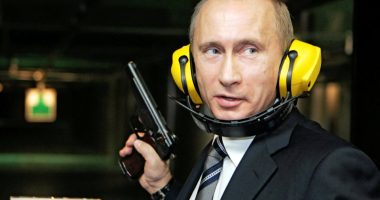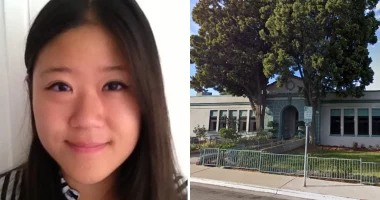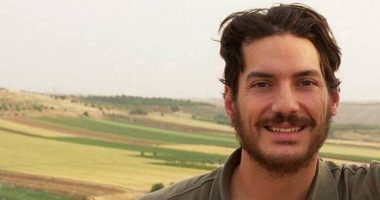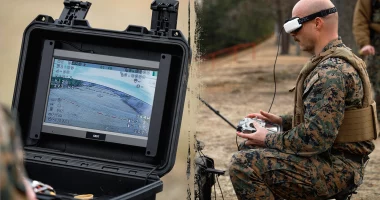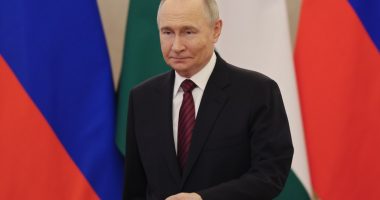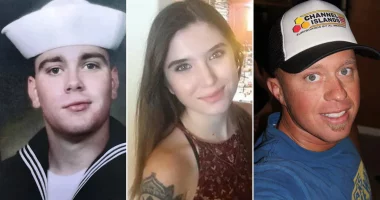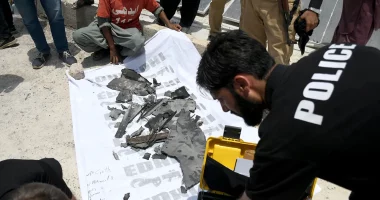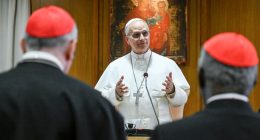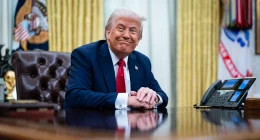Share this @internewscast.com
THIS is the terrifying moment deported gang members scream in anguish from their cells inside El Salvador’s notorious mega prison.
The imprisoned individuals, alleged members of Venezuela’s notorious Tren de Aragua cartel, are captured on video making loud noises and shaking the metal bars while astonished US authorities observe the scene.
This unsettling video offers an initial look inside the fortress-like CECOT prison after it started accommodating migrants expelled from the United States.
It was filmed during a high-profile tour of the jail by a US delegation, led by Salvadoran strongman president Nayib Bukele.
Representatives Andy Ogles, Vicente Gonzalez, Anna Paulina Luna, and ex-congressman Matt Gaetz were recorded navigating the stark hallways, with cries reverberating from the packed cells around them.
“I saw evil today. I will never forget it,” Luna said after the visit.
“I heard a story of a MS-13 admitting to watching an infant being murdered.
“I watched and listened to another member of MS-13 admit to murdering over 50 people.”
She added: “I saw murderers. Recruited as young boys and as boys their souls and humanity was crushed. Forcing them to commit murder as a way of blooding in.
“The Dems in congress advocating for this need to stop. Some of these men were illegally in Maryland, Massachusetts, Virginia, Texas, etc. multiple times deported.”
Other footage showed her sampling a prison meal – burgers and fries – one of the few concessions in a facility critics have called a “black hole of human rights”.
Hellhole prison
CECOT, or the Terrorism Confinement Centre, is the world’s largest prison with a planned capacity for 40,000 inmates.
The grim high-tech complex is located in Tecoluca , about 47 miles south of San Salvador.
It is central to Bukele’s brutal gang crackdown and now to Donald Trump’s immigration crackdown as well.
The prison currently cages around 15,000 — many of them freshly deported from the US.
But El Salvador is now working to double the size of CECOT to house up to 80,000 inmates as President Trump sends the “homegrown criminals” to the terrifying compound.
In February, Bukele struck a $6 million deal with Secretary of State Marco Rubio to house suspected members of the Tren de Aragua gang, the Venezuelan-origin criminal syndicate accused of spreading across Latin America and into US cities.
Homeland Security Secretary Kristi Noem later confirmed: “We have no plans to bring them back, this is a long-term solution.”
Noem, who toured the hellish jail herself, previously issued a chilling warning on camera: “If you are thinking of coming to America illegally, don’t do it. You are not welcome.”
The mega-prison has drawn international condemnation from rights groups who say the extreme confinement — 70 prisoners to a cell, 23.5 hours a day, no sunlight, no visits, no mattresses — is inhumane.
Since Bukele launched his authoritarian “State of Exception” in 2022, at least 363 prisoners have died in custody due to overcrowding, disease, and lack of food, according to local watchdog Cristosal.
Despite the grim toll, the Trump administration is pressing ahead with deportations.
Between February and March alone, 13,300 migrants were returned to Central America, according to NBC’s tracker.
Trump previously told Bukele in the Oval Office that the CECOT was “not big enough” and suggested the Salvadoran leader should “build about five more places.”
In a bombshell announcement, Trump has also floated plans to suspend habeas corpus — the centuries-old right to challenge unlawful detention — under the Constitution’s invasion clause.
White House deputy chief of staff Stephen Miller told reporters: “The Constitution is clear, and that, of course, is the supreme law of the land, that the privilege of the writ of habeas corpus can be suspended in a time of invasion.”
“So it’s an option we’re actively looking at.”
Trump’s use of the Alien Enemies Act of 1798 has already been blocked by courts in New York, Texas, Colorado, and Pennsylvania.
Judges have questioned whether the country is truly facing an “invasion” justifying the use of wartime powers to carry out mass deportations.
But Trump appears undeterred, saying he wants to go “a step further” and deport so-called “homegrown criminals” too.
“We also have homegrown criminals that push people into subways, hit elderly ladies on the back of the head when they’re not looking, that are absolute monsters,” he said.
“I’d like to include them in people to get out of the country.”
Trump’s deal with El Salvador
By Annabel Bate, Foreign News Reporter
In the “extraordinary” offer from President Nayib Bukele, some of the most dangerous thugs residing comfortably in US jails will be sent to El Salvador to serve their time.
Secretary of State Marco Rubio confirmed in February that Bukele agreed to the migratory agreement that will see US deportees of any nationality locked up.
Rubio gloated that it was the most “unprecedented, extraordinary, migratory agreement anywhere in the world” following tense talks at Bukele’s lakeside country house just outside of San Salvador.
He added that the Salvadoran president even “offered to do the same” for some of America’s most dangerous criminals currently locked up in the US – despite being citizens or legal residents.
Bukele agreed to take back blood-thirsty Salvadoran MS-13 gang members residing in the US unlawfully, State Department spokesperson Tammy Bruce explained in a statement.
She added that the Salvadoran president also “promised to accept and incarcerate violent illegal immigrants, including members of the Venezuelan Tren de Aragua gang, but also criminal illegal migrants from any country.”
In regards to the country also accepting to lock up dangerous American criminals, Bruce dubbed it as an “extraordinary gesture never before extended by any country.”
The notion of El Salvador accepting foreign nationals arrested in the US for violating immigration laws is dubbed a “safe third country agreement.”
Officials have hinted that this could be an option for brutal Venezuelan gang members convicted of crimes in the US if Venezuela were to refuse to accept them.


